The end of the cold war was the beginning of the America unipolar moment. But the “end of history” was followed by contradiction and arrogance which brought the conflict in Ukraine into being. Gerald Horne joins Paul Jay on theAnalysis.news.
TRANSCRIPT
Paul Jay
Hi, welcome to theAnalysis.news. I’m Paul Jay, and I’ll be back in just a few seconds with Gerald Horne. We’re going to discuss the Ukraine situation. Please don’t forget there’s a donate button and subscribe button. Get on our email list. Come over to the website at theAnalysis.news. It’s very important because every so often, YouTube screws around with us. I’m being told by people that have subscribed to us on YouTube and have ticked off that Bell at the top, which is supposed to mean you get a notice when we post a new story, a lot of people are saying they’re not getting the notices. So the only way to make sure you get the notices is to get on the email list. Back in a few seconds.
On March 2, the UN [United Nations] General Assembly passed a resolution deploring the Russian invasion of Ukraine. Apparently, the original draft of the resolution was condemning, but they were able to get more votes with the word deploring. The only countries to vote no, thus in support of Moscow, were Belarus, North Korea, Eritrea, and Syria. More interesting are the countries that abstained. Some of which have important economic ties to Russia and might have been expected to vote no and in support of Russia.
The 35 abstentions are— and here’s all 35 of them: Algeria, Angola, Armenia, Bangladesh, Bolivia, Burundi, the Central African Republic, China we know (China abstained at the Security Council meeting). Again, this is a resolution of the General Assembly— Cuba, which has been discussing much closer ties with Russia and has an important economic relationship. Yet they still abstained. The Republic of Congo, El Salvador, Salvador, Equatorial Guinea, India, which again abstained at the Security Council. Apparently, India, 60% of India’s military supplies come from Russia. A figure I didn’t know, and if that’s correct, that’s rather substantial, but still abstained. Iran has very important economic ties with Russia, abstained. Iraq, Kazakhstan, Kyrgyzstan, Laos, Madagascar, Mali, Mongolia, Mozambique, Namibia, Nicaragua, I think another particularly interesting extension. Pakistan, Senegal, South Africa, South Sudan, Sri Lanka, Sudan, Tajikistan, Tanzania, Uganda, Vietnam and Zimbabwe.
It’s hard to say why all these countries abstained. There may be different reasons for different countries, but overall it seems it was the lack of any historical context in the resolution, meaning the threat of expanding NATO [North Atlantic Treaty Organization] into Ukraine, while not justifying the invasion, certainly must be stated for the resolution to be fully supported. The historical context must be understood so the hypocrisy of American/European moral outrage can be revealed. The world will be a much more dangerous place, not only if the Russian invasion is not condemned, and I think it should be, but if the fundamentally aggressive nature of NATO is not also condemned. I think now is the time, not for NATO to get stronger, but for the sake of the world, of world peace, to disband.
At the very least, the Ukrainian government should and should have before now; there are some suggestions now that it might declare it will never join NATO. NATO should have and still should, at the very least, issue a statement stating Ukraine will never join, but they won’t do that. Of course, it’s better to have nuclear war than look weak.
Now joining us to discuss the UN resolution and the history that led up to that current war is Gerald Horne. He holds the John J. and Rebecca Moore’s Chair of History and African American Studies at the University of Houston. He’s the author of many books, most recently Storming the Heavens: African Americans and the Early Fight for the Right to Fly, The Apocalypse of Settler Colonialism: the Roots of Slavery, White Supremacy, and Capitalism in 17th Century North America and the Caribbean, and, of course, The Counter-Revolution of 1776: the Slave Resistance and the Origins of the United States of America. Thanks for joining us, Gerald.
Gerald Horne
Thank you for inviting me.
Paul Jay
So I’m sure you’ll agree with me. It’s much more important not to look weak, and nuclear war, of course, is a better option. I think both; it seems like Russia and NATO. believe that, which is why this may be one of our last conversations. Okay. I don’t really think the danger is quite that bad, but it’s dangerous. First of all, what do you make of all these countries that abstained and then let’s get into the history?
Gerald Horne
Well, with regard to the abstentions, I know that in Africa in particular, the African Union issued a statement expressing grave concern about all of these reports. Concerning how students from Nigeria, Morocco, Egypt, Ghana, medical students, for the most part, are being discriminated against in terms of trying to evacuate from Ukraine. Being roughed up at the Polish border and being roughed up at the Romanian border. I might also say that it has not gone down very well in black America either. I expect that the State Department will be hearing from representatives of the Congressional Black Caucus.
I think as well that the Arab League also issued a statement which was— I don’t think it could be characterized as pro-Moscow, but certainly it was not pro-NATO. I think that has a lot to do with some of the press reporting. All of these statements that you’ve heard, not only on CBS and BBC, but surprisingly and shockingly on Al Jazeera, this sort of orientalist demarcation between the refugees from Iraq and Afghanistan, on the one hand, and how they’re kept away from Europe, not to mention Africa itself. And then how these journalists, so-called, have been talking about the Ukrainians, how they, quote, look like us. For example, they have blonde hair and blue eyes. It’s really quite revolting. I think that has not gone down very well in the Muslim world. I think that that’s one of the reasons why if you peruse that list, most of the abstentions are either from Africa or from the Muslim world. Bangladesh—
Paul Jay
Let me just add to that. One of the most outstanding examples of what you’re saying is where the hell is a similar moral outrage to the Saudi and U.S.-backed Saudi invasion of Yemen, which is far more destructive and killed far more people than anything that’s going on in Ukraine yet. I’m not saying that in any way to justify or mitigate the critique of Russia, but the hypocrisy of the moral outrage, and as you’re saying, the racist underlying of this moral outrage is outstanding. Anyway, go on.
Gerald Horne
Well, sure. I mean, the Saudi bombing that has been taking place in the last few days is— perhaps understandably, we’ve been debating this Ukraine crisis. I think that it does not necessarily bode well, as we will talk about shortly, for the prospects of this NATO venture or adventure, I should say, on the Ukraine/Russian border. Despite what the U.S. and North American press are instructing us, this is so far a kind of pan-European unity that you see, that is to say, the European countries, the E.U., NATO, Canada, the United States are certainly in lockstep, and that’s highly important. I think it would be a bridge too far to quote this song from the 1980s, to say that quote, “we are the world,” unquote.
Paul Jay
I think it’s particularly interesting that Cuba and Nicaragua, but Cuba particularly, abstained here. Cuba is so isolated by the United States and suffers such terrible sanctions. They need this relationship with Russia and China. Still, they, to my mind, took quite a principal position here.
Gerald Horne
Well, as you know, these resolutions, even though this one was an advisory in the General Assembly, unlike a resolution that could have passed the UN Security Council this past Sunday. They have a kind of presidential value with regard to international law. I think countries like Cuba and Nicaragua, for example, are quite concerned about having a country’s borders violated and having that sanctioned.
On the other side of the coin, keep in mind that in the last 24 to 48 hours, the President of Mexico, AMLO [Andrés] López Obrador, has expressed distaste for the U.S.-NATO venture in Eastern Europe. And yet it was not on the list of abstentions. So there might be other countries in that category as well.
Paul Jay
I would expect there would be.
So you wrote an interesting article that was published in Black Agenda Report, which I think people should read. If I was to give a short take on it, this is part of the crisis of global capitalism. I think it’s really important to state that, which you do in the article. I think it’s as much a mistake to demonize Vladimir Putin, the individual or even the government, or demonize Joe Biden and the American government because this isn’t about demons. This is about the unfolding of a global system. If you want a demon, it’s global capitalism; that’s the demon. But these things don’t— global capitalism doesn’t play out as an abstraction. It plays out through real people and real actors, and that’s what needs to be understood. So there’s both this underlying systemic issue and then understanding in specifics how this unfolded. I thought the article was really great for understanding how we got here. So over to you.
Gerald Horne
I would divide this subject into three parts: pre-1917, that is to say, pre-Russian Revolution, the Soviet experience (1917-1991), and then the experience since 1991 with the collapse of the Soviet Union. I say this as well because, as we know in the North American press, there is this tendency to suggest that the current regime in Moscow was trying to recreate the Soviet Union. I was trying to suggest in this article that there are pre-Soviet continuities that one has to pay attention to if one wants to understand what’s going on.
What I mean is that for hundreds of years, particularly since the Western European Nations have gotten fat by pillaging and plundering the Americas and the African continent, you had a basic anomaly on the European continent. A basic contradiction in Europe whereby the so-called wealthy powers, the so-called global powers, speaking of Britain and France in the first place, were not necessarily hegemonic in their backyard. Speaking of Europe, Napoleon Bonaparte, the leader of France, tried to resolve this contradiction more than two centuries ago by invading Russia, and, of course, was soundly defeated.
A few decades later, you saw the so-called Crimea War of the 1850s, where London and Paris are joined by the then sick man of Europe, speaking of Ottoman Turkey, in terms of ganging up on Russia once again. And then in 1905, in one of the most spectacular misjudgments in world history, you see London egg on Japan to attack Russia and help to finance that defeat of Russia, which backfires spectacularly insofar as it leads to the Bolshevik Revolution in 1917. Then Japan pays back London by seizing its cash cows of Hong Kong and Singapore (1941-1942). At the same time, Russia was not standing still, as all of these plots were unfolding against it.
For example, in the black community and in the pan-African community, understandably and justifiably, there is a marking of the victory of the Abyssinians, the Ethiopians, over the Italian invaders in the 1890s. What’s little understood is that these victors, speaking of the Ethiopians, were armed to the teeth by Moscow. To a certain extent, Moscow was countering the Western Europeans who were trying to destabilize it by weakening their colonial system, which, of course, was the sustenance for their wealth and their preeminence globally. After the Bolshevik Revolution, to a certain extent, this trend continues. Still, it continues in a different way, with Moscow helping to arm the Cuban troops to defeat the apartheid army on the battlefield in Southern Africa in the 1980s, which is a waste station on the liberation of an entire subcontinent, leading to the election of Nelson Mandela in the first Democratic elections in 1994.
So what I’m trying to suggest is that if you look at your map of Europe, you will immediately see that most of the European territory is Russian territory. Even today, with the dissolution of the Soviet Union, you see a situation where Russia’s population is roughly twice the size of the number two country, speaking of the Federal Republic of Germany. If you look at the natural resources of Europe, most of those natural resources, be it gold, petroleum, and natural gas, is located on Russian soil. What that means is that, just as it’s going to be very difficult to keep Brazil from being preeminent in South America, or the United States from being preeminent in North America, or China and India from being preeminent in Asia, it’s going to be very difficult to keep Russia from being preeminent in Europe. That poses a problem for certain countries in the North Atlantic bloc, which is now in the process of being, quote, “resolved,” unquote.
Now that’s part one. Part two, of course, deals with the Soviet experience (1917-1991). Now with the collapse of the Soviet Union, I would characterize that, quite frankly, as a catastrophic victory for world imperialism. It was a victory, no doubt, because, of course, it leads to this era of unipolarity, which I’m afraid to say that Washington squanders with these adventures and escapades in Libya, Afghanistan, Iraq, et cetera. It was also catastrophic. In order to weaken the Soviet Union, as we well know, in the 1970s, the United States engaged in a marriage of convenience with religious zealots— oftentimes referred to as religious fundamentalists, particularly in Afghanistan. Then we hear this talk about how the United States wants to create another Afghanistan in Ukraine. Well, I guess they have forgotten that the escapade in Afghanistan, to be sure, weakened the Soviet Union and contributed perhaps to its collapse, but it also helped to empower these religious zealots who struck back with a vengeance, we are told, on September 11, 2001, and just ejected U.S. imperialism quite ignominiously in August 2021. We have not heard the last of these religious zealots because they continue to receive overt, if not covert, support from their patrons in Saudi Arabia and other Gulf monarchies.
Suppose you look at the dissolution of the Soviet Union. In that case, you see a situation whereby Moscow no longer has to send subsidies to Moldova, Georgia, Turkistan, and no longer feels compelled to prop up Nicaragua, for example, or even necessarily prop up Cuba except on market principles. And that allows Moscow to husband its resources. Despite the invocation of this misleading quotation, from the late Senator John McCain, which speaks of Russia as a gas station masquerading as a superpower, or the statement with racist overtones that speaks of Russia as Upper Volta with missiles. I think that’s an outdated point of view. They haven’t looked at the newspapers since the unlimited era of Boris Yeltsin.
If you look at the latest scholarship, for example, Kathyrn Stoner’s book, the Stanford Scholar, Russia Resurrected, the title was self-explanatory. As Vladimir Putin never ceases to remind us, Russia has developed these hypersonic missiles that, to the best of my knowledge, are not necessarily in the U.S. arsenal. We already see the roiling of agricultural markets as a result of this conflict in Eastern Europe. That is to say, not only is Ukraine a major source of wheat and other agricultural commodities but so is Russia. This rise in prices and supply chain problems as a result of this conflict could easily cause added turmoil in North Africa in particular, which would then hasten the crossing of the Mediterranean and African refugees, which in the recent past has led to a surge and influence of right-wing populists.
So it’s a mistake to underestimate Russia. I think that those who have been doing so, certainly, as you alluded to a moment ago, should pay attention to these ominous words from President Putin just a few days ago, reminding one and all about the nuclear arsenal that Moscow has and could ruin many a day.
And then thirdly, in terms of the trio of eras that lead me to characterize the Cold War epoch (1917-1991) as a kind of catastrophic victory, just as London felt compelled to beef up Japan at the beginning of the 20th century in order to weaken Russia, we’re marking at least in the week of the invasion, late February 2022, we were marking the 50th anniversary of [Richard] Nixon’s trip to China, where an entente was effectuated with China on an anti-Soviet basis. On an anti-Moscow basis. Britain helped to build up Japan. The United States helped to build up China. With both, of course, having Moscow in the cross areas and that juggernaut that bids fair to leave U.S. imperialism sprawling in the dust along with the sidekicks in the North Atlantic bloc, which leads me to suspect that with regard to this current crisis, what’s at play from the point of view of Washington, at least, and its allies is not only regime change in Moscow, which I’m sure they are more than willing to execute if given the opportunity, but also weakening China’s major partner, speaking of Russia. And that would help to effectuate an encirclement of China. Already you have India, Australia, Japan, and the United States as part of the so-called quad. And of course, South Korea probably will be an informal member, an ex-official member of the quad. Then if you have a regime change in Moscow, voila, there you have it, this kind of encirclement.
But that’s more than a notion— not only regime change in Moscow, but even if you execute regime change in Moscow, it’s not clear to me that a regime will come to power that will necessarily be friendly to Washington. Lurking in the wings, in terms of the corridors of power in Moscow, it’s not only the dissident members of the United Russia Party, that is to say, Putin’s Party, but there’s still a Communist Party of the Russian Federation. It would be ironic indeed if the United States were to execute a policy that brings Communists back to power in Moscow. I think that even the propagandists who litter the pages of the North American press would have trouble rationalizing that.
Just a footnote before I turn it back to you, with regard to the North American press, it’s quite disturbing. I must say that it reminds me of those old sayings: that truth is the first casualty of war, and that truth is so precious in war that it has to be accompanied by a bodyguard of lies.
It’s very difficult when one reads the New York Times and the Washington Post, in particular, to find out kernels of accuracy and truth. Now, I will say that with regard to the Financial Times of London, on the editorial page and on the front page, there’s scaremongering and fear-mongering. But once you turn inside, you get sort of a realistic analysis of the balance of forces and correlation of forces. With regard to the two major U.S. newspapers, they’ve lost all sense of proportion.
This brings me to the third part, which is 1991-2022, this 30 plus year period, which has been marked by an expansion of the North Atlantic Treaty Organization, organized in 1949 on an anti-Soviet basis. One would have thought that it would have collapsed with the collapse of the Soviet Union. The architect of the Cold War, the late George Kennan, who wrote the 1947 Long Telegram in the Foreign Affairs journal. He was amongst those who counselled against expanding NATO with the collapse of the Soviet Union. Even Tom Friedman of the New York Times, who’s been wrong on basically every major foreign policy issue, reminded his audience that he, too, counselled against the expansion of NATO.
And so now you have these minnows like North Macedonia and Montenegro that are part of NATO, which means, of course, they have to dig into their treasury to buy U.S. weapons or under the concept of interoperability. For example, then, of course, you’ve had the spectacle of Germany in recent days, which should have caused a shudder when Chancellor [Olaf] Scholz said that he was overthrowing Germany’s quasi-pacifist tradition since 1945 and raising military spending. That should have caused a shudder in London, Paris, Brussels and the United States. I mean, these folks have forgotten the lessons of World War I and World War II, for example. In any case, there’s this short-sightedness with regard to Russia.
As I said in that article you so kindly referenced, in some ways, what’s happening now reminds me of the famed Herman Melville novel Moby Dick, where the protagonist becomes crazed and self-destructive in terms of trying to ensnare the whale. With Russia, if you look at your map, seemingly resembling a whale and powers from Britain at the turn of the 20th century to Washington and 50 years ago to the North Atlantic bloc today, so mesmerized by the spectre of Russia that they’re willing to engage in a kind of harakiri.
It’s not only the spending on military weapons that will cause, I’m sure, a rise in the stock price of Raytheon, the former home of Pentagon Chief of Lloyd Austin and Lockheed Martin, but it’s also natural gas. That is to say that I’m speaking to you from the self-proclaimed Petrol Metro of Houston, Texas. I think I’ve heard the sound of corks and champagne bottles popping all over town at the prospect of grabbing these natural gas markets from Gazprom, who I understand share price has gone down 90 plus percent. In recent days as Olaf Schultz talks about building a port whereby liquefied natural gas from this part of North America can be exported to Germany. I would like to warn those who are popping the corks on champagne bottles to think a bit more deeply. Right now, what’s going on is a kind of economic warfare against Russia. As you know, they’ve been ousted from the so-called interbank system known as SWIFT [Society for Worldwide Interbank Financial Telecommunication], but that could possibly lead or hasten the prospect of de-dollarization, that is to say, a SWIFT substitute being built by the People’s Republic of China, to which Russia then signs on.
You may recall the late Zbigniew Brzezinski, the architect of the ill-fated enterprise in Afghanistan of the 1970-1980s. In his last book, The Grand Chess Board, he warned specifically and precisely against the prospect that a new bloc of powers would emerge to challenge U.S. imperialism, speaking of China, Russia, and Iran. That seems to be in motion as we speak. You referenced Iran’s not voting in favor of the General Assembly resolution.
And then, just to wrap up, there is the utter hypocrisy of [Jens] Stoltenberg, the NATO Chief who seems to have this phrase about NATO being a defensive alliance on speed dial. I guess he has a kind of amnesia. He doesn’t recall, I assume, the overthrow of [Muammar] Gaddafi in Libya in 2011. Presumably, he’s forgotten the NATO adventure in Afghanistan. And then you have the press talking about how this is the biggest war on the European continent since 1945. I assume they’ve forgotten Yugoslavia. Perhaps they’ve forgotten the U.S. bombing of that former Republic. I assume they’ve forgotten how the United States acted as a midwife for the establishment of the State now known as Kosovo, of which the Serbians out rightly objected to. They may have forgotten that during the 1990s, during that war in the form of Yugoslavia, the United States bombed the Chinese Embassy in Belgrade, a punch in the nose to a rising China. But I can assure you that China has not forgotten.
And there we have it. We’re in the midst of a crisis. We may be on the cusp of catastrophe once again. As your comments at the top suggested, this has everything to do with the preservation of a certain kind of capitalism, a certain kind of imperialism, spearheaded by the United States of America.
I must say it’s quite disappointing, particularly the response of France. France blathers and bloviates, that is to say, Mr. [Emmanuel] Macron constantly, insistently and incessantly about the strategic autonomy of the European Union. He was speaking of NATO as brain dead as recently as a year or so ago. One would think that he, more than others, would be familiar with what John Bolton, the disgraced National Security Adviser under Trump, said in his memoir: that Trump and those he represents see the European Union as second to China, as a threat to U.S. hegemony. Recall those meetings when Trump was actually throwing things at Chancellor [Angela] Merkel of Germany, insulting NATO, insulting the European Union.
So what’s happening as a result of this war fever is that the vassal status, ironically, of the European Union is being cemented. That is to say, the European Union, with a larger market than that of the United States of America, allows it to set the rules of the road to a certain degree. Not only for capitalism but to a certain degree for the international market. You may want to consult the book by Anu Bradford. A-N-U Bradford, The Brussels Effect. A Columbia University Professor who talks about this at some length. As it turns out, the European Union is a kind of giant with feet of clay, despite the protestations to the contrary by President Macron and his sidekicks.
Paul Jay
Thank you. This is one of the longest answers I’ve ever allowed, and I’m so happy I didn’t interrupt you. I’ve only a couple of things to add. This concept that the American press and the political class talking about Putin trying to reconstitute the Soviet Union. It is such a crock. The emergence of the People’s Democratic Republics in Eastern Europe that became part of the Soviet Union was only partly because the Soviet troops were there because they had beaten back the Nazis. It was also because there were powerful socialist movements in almost all these, if not all these countries. There were strong Communist-led movements. The partisans were mostly Communists. There was popular support for being part of the Soviet Union. Now I think that has changed. Over the years, as the situation in the Soviet Union became more bureaucratised and the States in Eastern European countries became more and more police-type States, I think it changed.
It’s very clear from what’s happening already in Ukraine that if Russia ever tried to invade any of these countries, there would be popular resistance at an enormous level. There wasn’t at the time after World War II because there was a lot of popular support. People, when they were out in the streets celebrating the defeat of Nazism, they were holding placards with a picture of Stalin on them. Not only in Eastern Europe, but that was also true in Western Europe, too.
This is not an analogous situation at all. And in fact, I think it’s ridiculous to think that any of these East European countries, including the former Soviet republics, need NATO to stop any kind of Russian invasion. The days of this direct colonization are over. Putin is about to find out how over. I think he’s just got himself in a ridiculous no-win situation in Ukraine. Either he does regime change in Kyiv and can’t leave because the government won’t last. Popular resistance isn’t going to end. And maybe it is, as you were saying, maybe it is Putin that winds up losing his job or perhaps his head. But I’m with you.
I think the point you made very early on is very important. The pure objectivity of the potential of Russia is such that it is going to be a big power in the region. It is a regional power. There is nothing anybody can do about it. The Americans are just pissed off that out of the chaos of the ’90s, they weren’t able to take control of all these resources and turn Russia into a subordinate state like most of Europe. They’re not going to be. I mean, I don’t see— if Putin does fall as a result of this, maybe there’ll be someone more like the Chinese who come to power, who are a little less brutal in how they exercise power, but a little smarter about it. I think Putin’s been mostly smart, but this sure isn’t.
Gerald Horne
With regard to what you just articulated, once again, there’s a poor understanding of history. People forget, for whatever reason, that this antipathy to Moscow that you may espy in Warsaw was not necessarily true of the entirety of Eastern Europe. I mean, for example, Bulgaria owes its independence and sovereignty to Russia confronting the Ottoman Turks in the 1870s, for example. And that helps to undergird that tight alliance that developed between Sofia and Moscow in the succeeding decades. You mentioned the partisans, that is to say, those in Serbia and Croatia who fought the Nazis tooth and nail. Of course, one of the leading partisans was Josip Broz Tito, the emerging leader of the formerly socialist Yugoslavia whose death was probably a precondition to a breakup of the country. You mentioned the strength of Communist parties.
For example, we know that before the end of the Cold War, the PCI, the Italian Communist Party, was one of the strongest Communist parties on the European continent. In the 1947 elections, the United States had to recruit a number of Italian American families to reach back across to the homeland to influence their brethren and their brothers and sisters to vote against the Communist Party to keep them from coming to power.
You had a similar strengthened Communist Party in France as well.
Paul Jay
And Greece.
Gerald Horne
Correct. And then, of course, the point that I should have mentioned is that we all recall the so-called Cuban Missile Crisis of October 1962, when the United States was willing to blow up the world because Moscow had placed defensive missiles on the island to blunt a replay of the Bay of Pig’s debacle of April 1961, that’s the U.S. invasion attempted overthrow of the regime. The United States, of course, was willing to blow up the world. Finally, it was negotiated. Which points, I guess, to what at least I’m saying right now, that to dig ourselves out of this crisis, and I don’t only mean Moscow, I also mean the North Atlantic bloc because they’re creating a crisis that they may not be able to recover from as well. You need de-escalation and negotiation sooner rather than later. The Chinese have offered their good offices as a mediator. I doubt Washington will go for that, but the Turks have done the same thing. The Turks are part of NATO.
President [Recep Tayyip] Erdogan was in Ukraine just a few weeks before the special military operation engineered by Moscow. So at least they should take up the Turks on their offer to serve as a mediator so we can dig ourselves out of this deep hole in which we find ourselves.
Paul Jay
I think Turkey was not on the list of abstentions. I think they voted with the resolution if I remember correctly. They did something else that was very interesting. These sorts of straits and canals that allow ships to get into the Black Sea run through Turkish territory. And Turkey invoked a 1939, I think it is, Treaty. They have now said no warships can get into the Black Sea, which means the Russians can’t put more ships there. I suppose, hopefully, it means Americans can’t send any other ships there too.
But anyway, it’s very interesting what a miscalculation this has been by the Russian State. The other thing I want to add to this conversation and go back to is the issue of where we are in terms of the development of global capitalism, particularly American capitalism. The absolute short-sightedness in terms of making profits today, tomorrow, next week, even over geopolitical strategy, makes no sense. If you think China is your main rival in the world, why the hell do you push Russia further into the Chinese camp? What would it have cost you to say, you know what, we all know, nobody wants Ukraine in NATO really? And that actually is the truth. Nobody in NATO actually wants Ukraine in NATO.
So if the truth is you’re never really letting Ukraine in NATO, then damn well say so. Give them that and do what you can to normalize relations with Russia so that you can push Russia away from China. What if you do that? The price of oil and gas won’t go over $100. It won’t go through the roof. As you said, corks are popping in Texas. And of course, the arms, all these arms being shipped to Ukraine, millions and millions, hundreds of millions, they all have to be replaced. Of course, as you said, who’s going to benefit from that? Where are they going to buy all these arms? Well, of course, all the NATO countries, on the whole, are pressured as part of their kissing the American ring to buy. A significant amount of those arms have to be American. So the short-sidedness, even in terms of Brzezinski’s chessboard, is just nuts. There’s more money to be made out of the short term.
And of course, let me just add to that, if you want to talk about this as a state of how parasitical and short-sighted this capitalism is, nothing, of course, is more than climate change. No one’s even talking about the IPCC report from Monday that was even more apocalyptic in its language of what 1.5 degrees and two degrees look like. Never mind three and four. We are headed there; it looks like we are headed there. It looks like that’s going to be the world in the next few decades.
The predictions in this report of just what, 10 or 15 years from now looks like— the state of global capitalism is such that even their own demise it’s too far off. It’s 10-15 years. We can live with it. Maybe it’s 30 years. We’ll be okay. It is beyond. Of course, the question comes back to how the hell do we alarm ordinary people, so they get how the system is not just threatening us with nuclear weapons in a way? It hasn’t for decades, and it is.
I was interviewed by this wrestling podcast in Europe because I made a wrestling documentary. I can’t talk about wrestling except as a metaphor for today’s politics. I said as much as a lot of this is theatre, a lot of it’s posturing. I have to say Putin’s invasion is not theatre or posturing; he’s gone beyond that. But even when it’s theatre, accidents happen. In wrestling, [Bill] Goldberg, when he dropped kick Brad Hart, he wasn’t supposed to knock him out. Later, Brad Hart has a stroke. Well, shit happens in these situations, and you get this dangerous, this provocative. Everybody’s now talking about nuclear weapons in the way they weren’t.
In 1983, President [Yuri] Andropov of the Soviet Union, because of all the posturing and rhetoric of [Ronald] Reagan, was ready for a nuclear strike. He thought war was coming. It’s very possible in the heads of some of these military planners; they’re all on edge in a way they haven’t been. We do what we can here, and others, you do what you can. But Jesus, we got to hope there’s a way to wake people up to the current danger.
Gerald Horne
Also, one more point that I should have mentioned, which is that it seemed for a while after Putin had come to power, circa 2000/2001, that there was going to be a more realistic policy by the imperialist bloc. Recall that Russia was part of the G8, as it was then called, but for various reasons, was expelled. As you suggested, the U.S. and its allies really have to understand, comprehend or articulate the primary antagonist of U.S. imperialism. We had thought with the pivot to Asia under President [Barack] Obama that it was the People’s Republic of China. Yet somehow, they keep getting dragged into these conflicts with Russia. At the same time, they’re disparaging Russia. Obama was calling it no more than a regional power. The insults tossed at Russia by Senator McCain that I’ve already made reference to. And so, therefore, it gives their entire global policy a certain kind of irrationality and a certain kind of dearth of realism as well.
Just one more point, which is that I think part of the difficulty in confronting China, which explicates what the United States, in particular, keeps getting sidelined in these confrontations with Moscow, is that today, in order to confront China, you would have to confront Tesla, Microsoft, Apple, GM, Starbucks and KFC. You have to confront a good deal of the Fortune 500, that is to say, the largest U.S. corporations. That may be in the cards at some point in the coming decade or coming century, but apparently, it’s not in the cards right now.
This then brings us back to weakening China’s major partner, which is Moscow, as a kind of indirection. Although, if I were a stock picker and giving out stock advice, at some point in the future, I think that the stock pickers may start to short. That’s to say, bet on the fall in the price of stock of those corporations I’ve just enumerated because they’re going to be in the crosshairs. They’re probably going to be accused of being unpatriotic. They’re going to be accused of shipping jobs overseas, particularly unlike Mr. Biden’s State of the Union address of March 2022, which was beating the drum about, quote, “Buy America,” unquote, at the same time that these corporations are continually sending capital across the Pacific to supposedly the major antagonist.
Paul Jay
Well, I think the real danger is an attempt. The rivalry with China gets more hostile. I think this Russian thing, especially over Ukraine— Larry Wilkerson has called it a transitory event. In the long run, I think it is transitory. Other than that, it’s a great fueling of the cost of the fossil fuel arms industry. The real potential danger to the world, other than a nuclear outcome with Russia, which is certainly not impossible, is the rivalry with China. I got to say, it’s an upside of globalization. It’s one of the few things about the way globalization developed. I’m glad these American companies are embroiled in China. I’m glad they want access to the Chinese market. At least for a time, it makes things less dangerous.
I really am worried about, and I said this before Biden was elected, but I’ll say it again now. As dangerous as the Democrats can be in foreign policy, the Trumpian Republicans are far more hostile to China. If Trump wanted to downplay the rivalry with Russia as [inaudible 00:49:09] through Tucker Carlson until just a few days ago. It’s only because they want to inflame the situation with China. Steve Bannon was very overt about it.
There’s this time, now, about four years ago, five years ago, there was a meeting in the Vatican on something called— I have to look up my notes, but it’s something like the Family Values Foundation. Cardinal Burke, the very right-wing American Cardinal who’s been trying to overthrow Pope Francis, he’s like the patron of this thing. Well, Steve Bannon spoke by webcam to this meeting in the Vatican. He was the featured speaker. He said, a bloody struggle is coming, and we better be prepared for a bloody struggle. And that was with China and Islam, but he was more about China. And that is where the Trumpian forces are coming from. I don’t think it’s because they have any great belief in anything; it’s just that there’s even more money to be made if you can completely derail any kind of climate change policy and inflame the situation with China— even more expenditure. You can justify more military expenditure with China than you can with Russia.
Anyway, it’s a goddamn dangerous world. And thank you so much, Gerald. All I can say is let’s try to influence public opinion more than all of us are. People need to get just how dangerous we are. Get everybody to read the highlights of that IPCC [Intergovernmental Panel on Climate Change] climate report. I’m going to be interviewing somebody tomorrow about it.
Gerald Horne
Good.
Paul Jay
We should just keep reminding people about climate in the midst of all this other stuff because it’s very easy to keep putting climate on the back burner.
Gerald Horne
I understand.
Paul Jay
Thanks for joining me, Gerald.
Gerald Horne
Thank you for inviting me.
Paul Jay
And thank you for joining us on theAnalysis.news. Please again, don’t forget to donate, subscribe and share—all the buttons.
END
Podcast: Play in new window | Download | Embed
Subscribe Apple Podcasts | Spotify | Android | iHeartRadio | Blubrry | TuneIn | Deezer | RSS
Never miss another story
Subscribe to theAnalysis.news – Newsletter

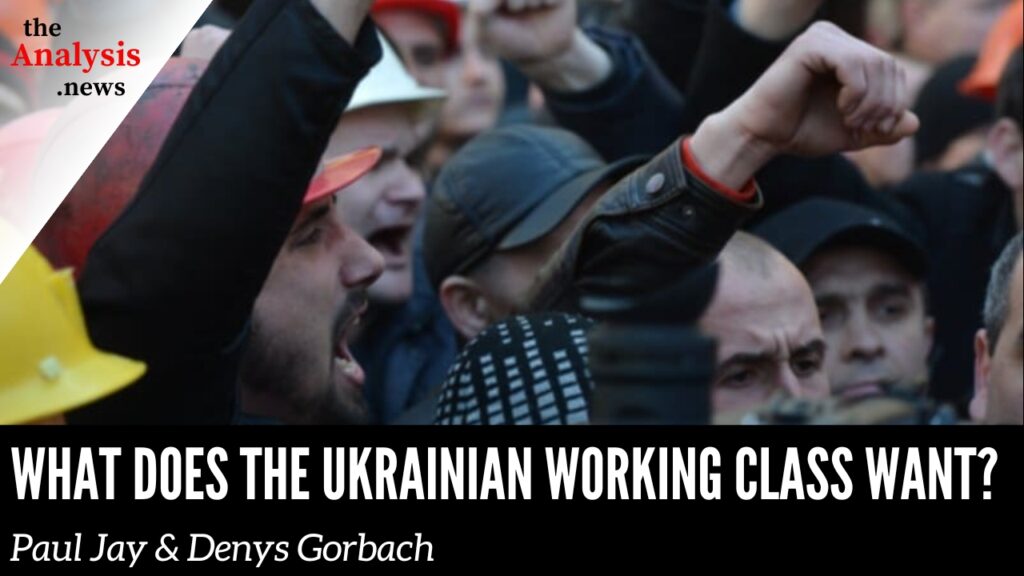
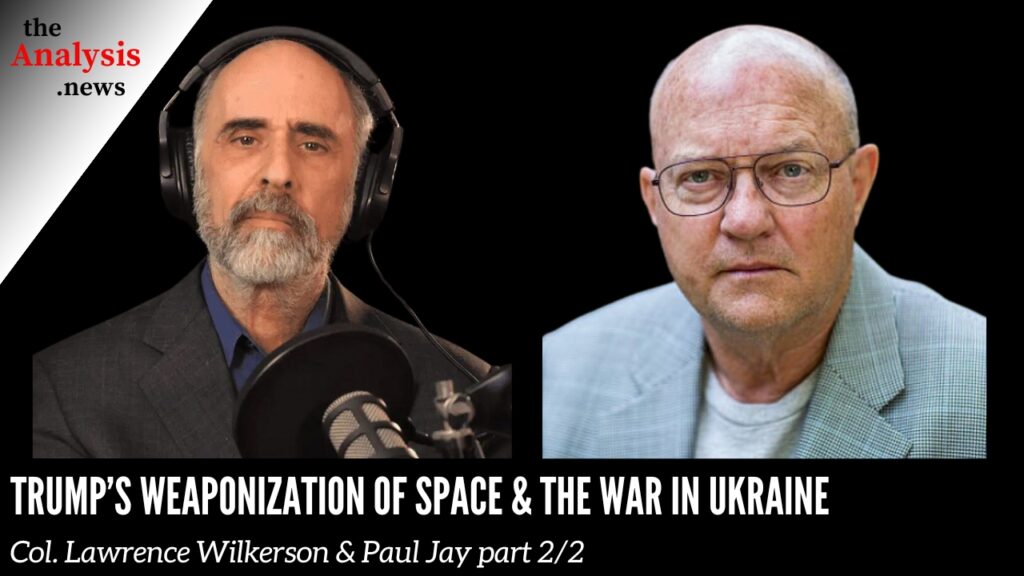


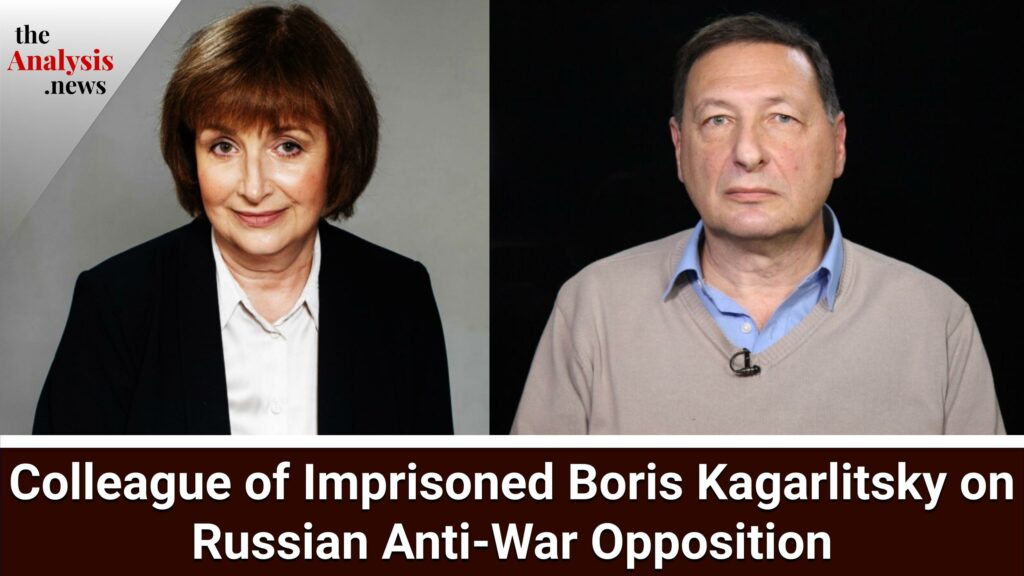
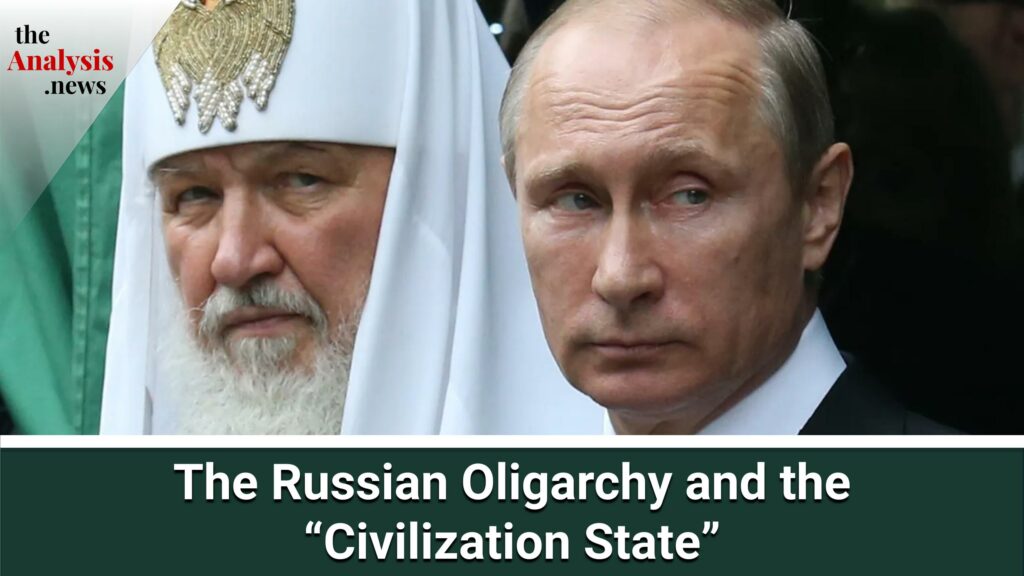
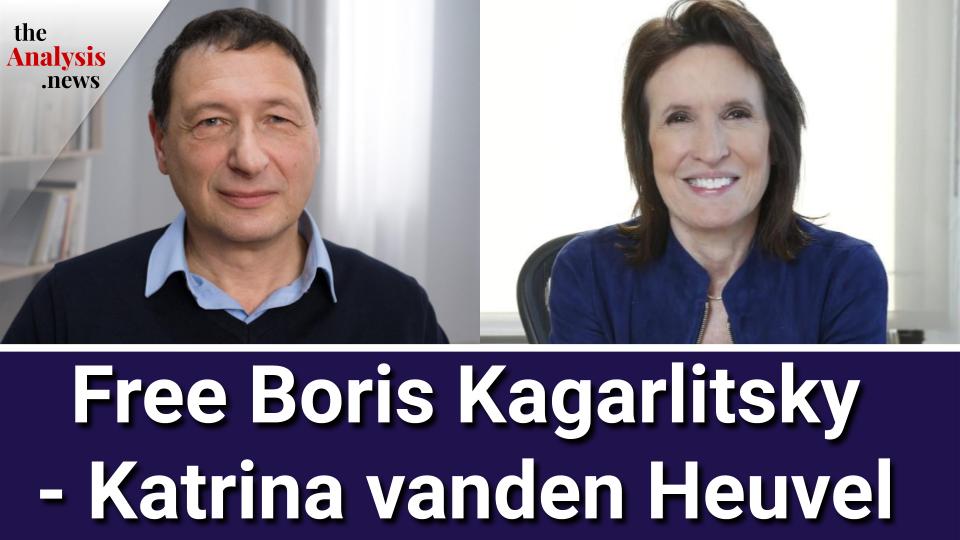
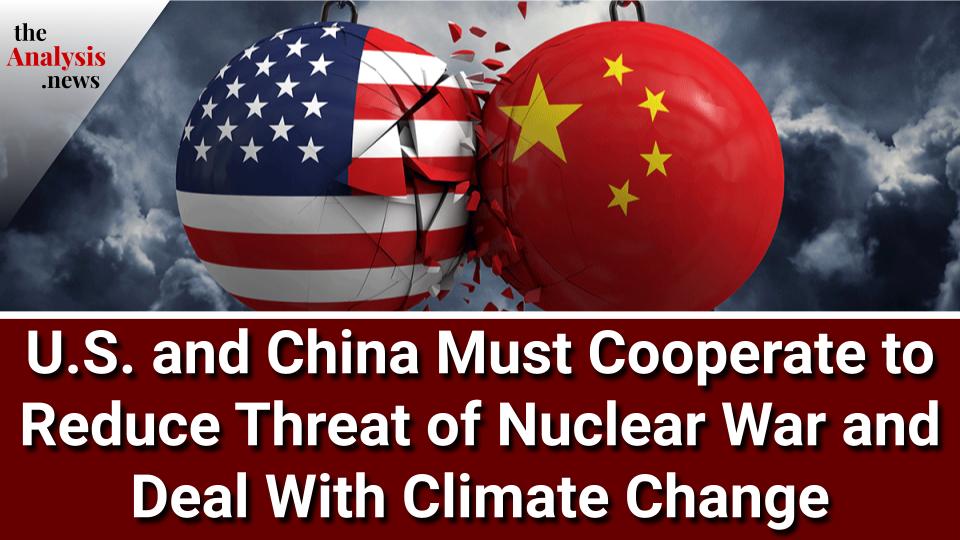
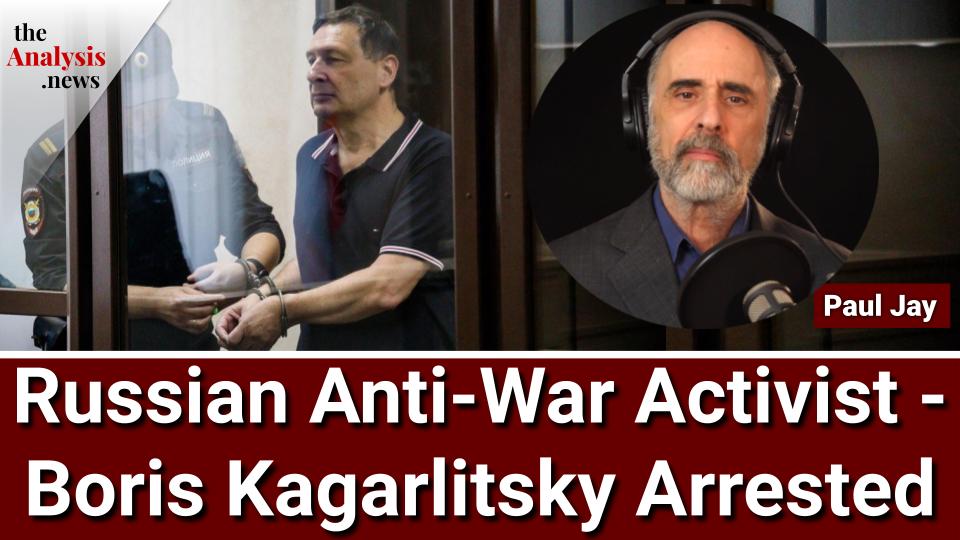

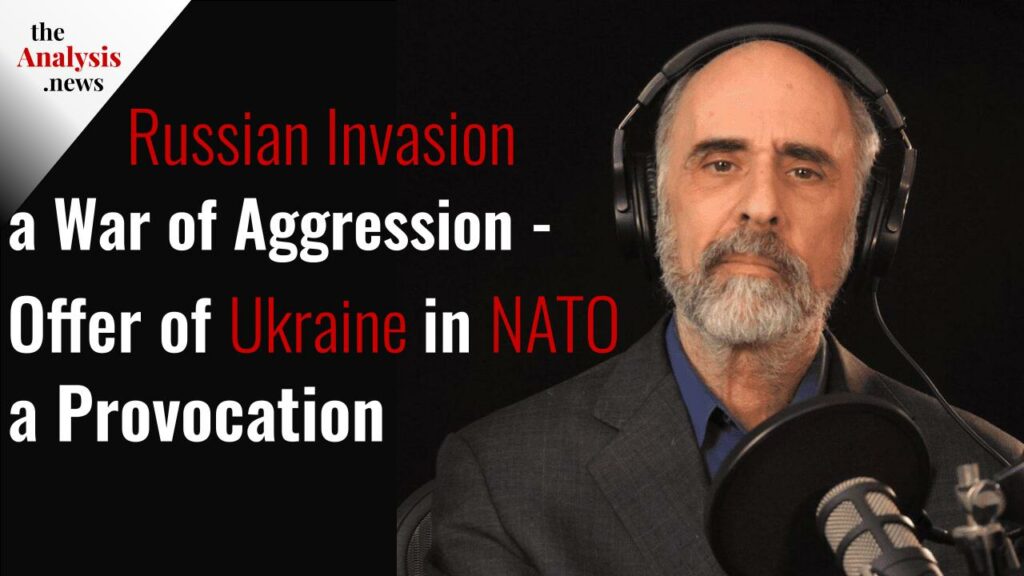
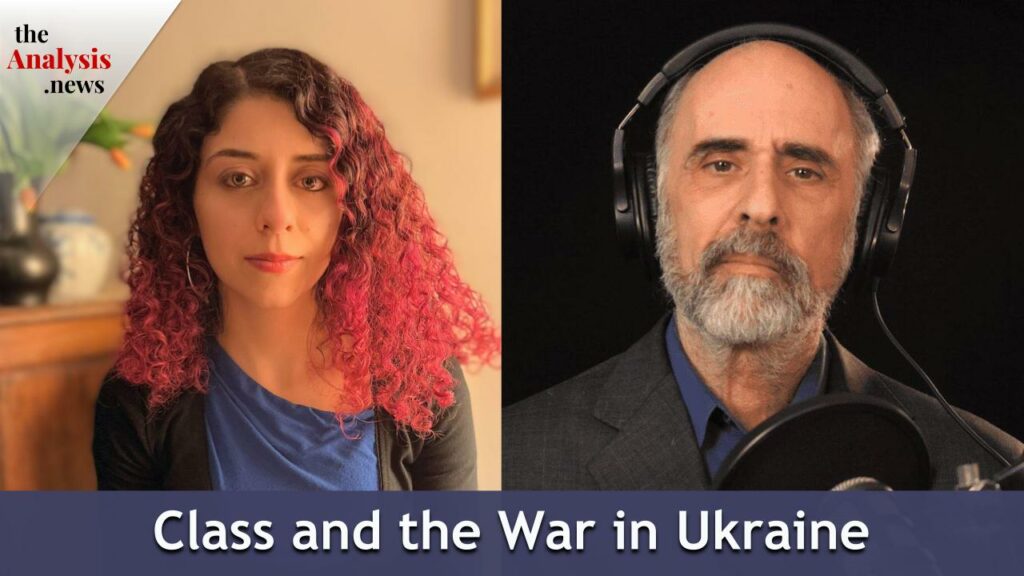
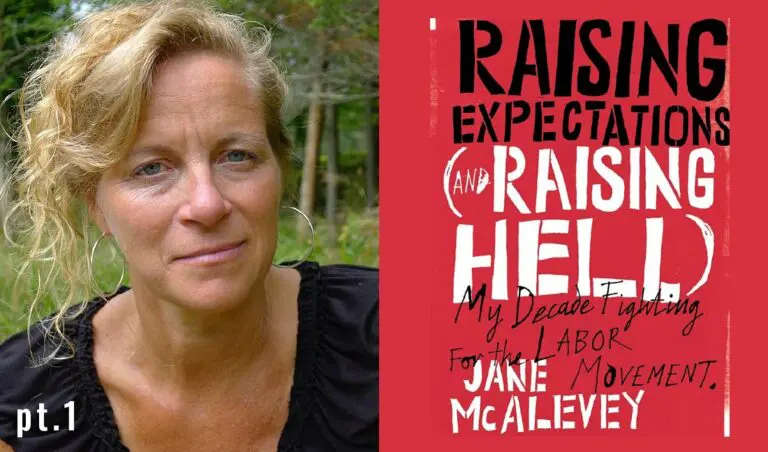

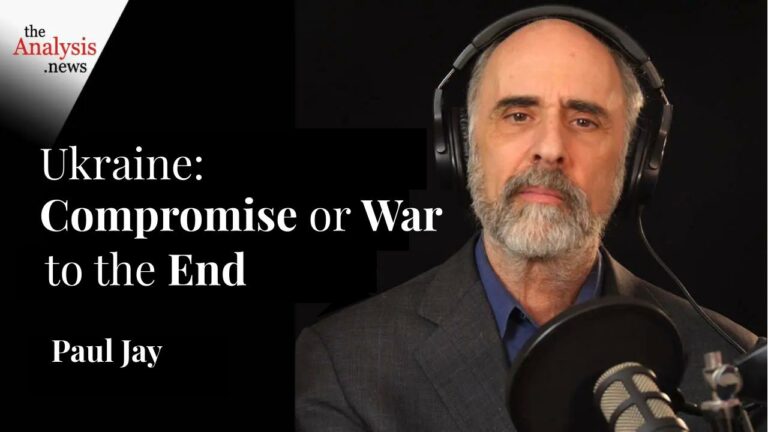
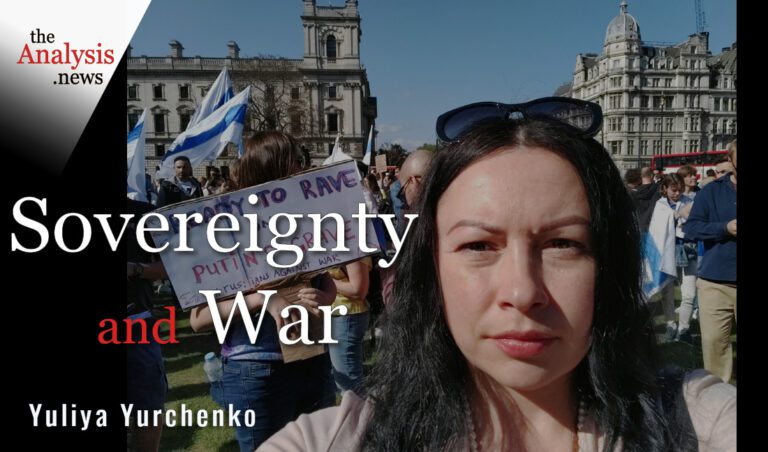
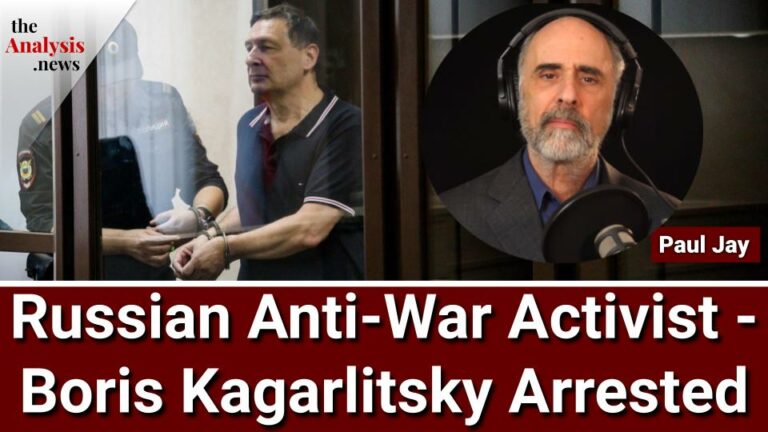
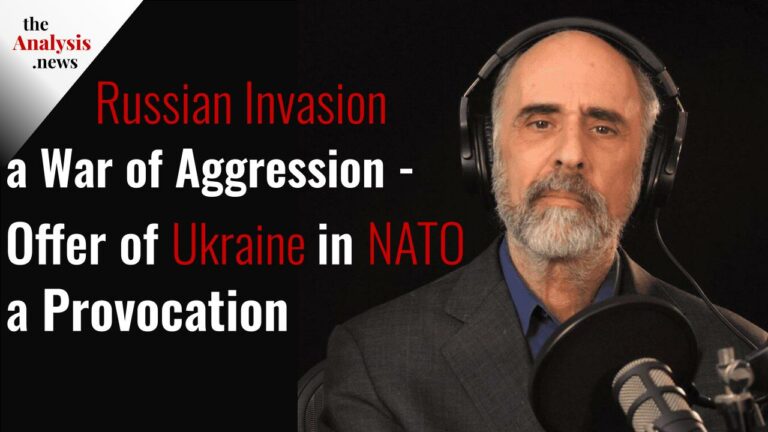
As a Ritter teaser, I suggest you listen to this interview.
https://www.youtube.com/watch?v=C6NnUlhpxR4
I strongly urge you to interview Scott Ritter. He is a real military analyst, fully conversant with war, Russia, and the West. He speaks of the denazification of Ukraine. More importantly he makes some predictions as to how all this will play out in the West. Russophobia has driven Russia to China. Bad idea. Importantly, he explains how the Duma works, how Putin is constrained by the Duma. Russia understands the West has entirely broken with Russia Russia will finally issues its own sanctions. And they will really hurt.
War, economy, climate–these are the three horrors for this century.
Any, interview Scott Ritter. It will be well worth your while.
Ritter, on some interview on YouTune, was talking about how the Russians were being so gentle, and winning so fast, and the invasion would be done in a week. Well, three weeks later his predictions have not worked out so well. I’d like to hear his followup, but I wonder how serious to take him at this point. And not to mention his troubles with the law, so to speak, and how does that affect his credibility? He has a lot to say though and it sounded plausible until lately. What does he think is up. Another one, in this case I have real respect for, is Oliver Stone. I’d like to hear if he has anything to say about what is going on. This war does have a very manufactured feel to it, and all contrarian voices are either silenced of muffled.
The end of the Soviet Union was greeted as a sort of comic relief by many here in the West. After decades of being menaced by nuclear weapons and the threat of World War III American pop culture had finally been vindicated. Fictional personalities like John Rambo, Mikhail Baryshnikov and Rocky Balboa danced across our video screens while songs like Wind of Change by Scorpions played on the radios. Ordinary people raised a pint of beer and bid the USSR farewell. The era of good feelings went on for more than three decades until recently. Now the West has resuscitated the former USSR into a new Frankenstein who stalks and flies at the throat of it’s neighbor. Again, this is another type of comedy when you consider the role the West played in bringing about this new Creature. And moving to Sanction the Creature so quickly without even considering the implications might cause severe damage. Russia could find itself in the midst of widespread famine not seen since the era of Stalin. I guess more than thirty years of pent up frustration has finally found an outlet for release. And diplomacy has failed on our side first.
Correction on previous post.
I am confused. While the invasion of Ukraine is an illegal war of aggression, mainly because Russia is not the United States — what about a “red line” that Putin warned the west about attacking the Donbas. The OSCE reported massive attacks in Donetsk prior to the the Russia Special Operation.
Wasn’t that a provocation sufficient to provide a casus belli for the Russian operation? NATO and the US have been dismissing every attempt at negotiation by Putin who has made a perfectly reasonable demand that Ukraine not host a hostile military force after Russia was surrounded by hostile NATO forces on their border. Every country deserves security for their people, especially one that withstood over 20 million dead that last time.
I am confused. While the invasion of Ukraine is an illegal war of aggression, mainly because Russia is not the United States — what about a “red line” that Putin warned the west about attacking the Donbas. The OSCE reported massive attacks in Donetsk prior to the the Russia Special Operation.
Wasn’t that a provocation sufficient to provide a casus belli for the Russian operation? NATO and the US have been dismissing every attempt at negotiation by Putin who has made perfectly reasonable demand that Ukraine not host a hostile military force after NATO became surrounded by hostile forces on their border. Every country deserves security for their people, especially one that withstood over 20 million dead that last time.
https://www.youtube.com/watch?v=03AqKuCg96I
Azov guys promising to ring down death and terror on EU and Russia after they finish cleansing Ukraine with weapons supplied by NATO/USA.
As to NATO saying no to Ukraine being enough to stop the Russian “police action”, that’s 100% wrong. Ukraine has (had if the Russians got it all) the makings of many, many large dirty nuclear bombs immediately to hand. They had the Plutonium at hand that they could have had several functioning H-bomb, not just a Hiroshima A-bomb in 6-9 months (and USA would have given tech support, just like Pakistan). So Zelinski publicly made the threat. Once that was on the table, everything else was moot.
Next to Odessa the USN was building a military base. That the USA and Canadians pulled out all their forces indicated clearly that Russia said those bases were toast (as they are now), US military present nor not and that’s why there was a mad rush to pull out. It’s a game, and the Russians are actually letting Biden have a tiny bit of face to save all of us from nuclear war.
Last point, NATO is pushing Maldova to take out Transnistria, and do it American style, ie: kill everyone they possibly can by bombing and artillery and roll over it while Russia is “busy”. That’s why the Russians are going double fast in the south to build the land bridge, before the USA and their local goons can practice a “final solution” © on the Russians of Transestria. Paul, I guess you think the only thing that should be done is after the fact, let a holocausts/genocide go a head, then have a Nuremberg trial so the USA can take over the territory, hang a few, and the select the cream of the crop to join the MIC-IMATT machine, just like after WW2? Do I have that right?
©USA: the Nazi’s were intellectual property right violators who copied American legal code and administration on: Land theft (Lebensraum), Final Solution (solving the Native American/Philippines insurrections, and of course in the Amazon till today) including death, eugenics (Lebensunwertes Leben) going on till 1980s, and may be still going on), Slave Labour (both chattel and bonded until today), etc. Though to be kind, Adolf does give credit for his theft to America in his book about his struggles, and he thanks Henry Ford for his updating anti-Semitic propaganda.
What was not addressed by Paul
was the likely outcome of the midterm elections and the 2024 presidency, given the miserable track and policy record of the “democratic” party.
Very good discussion.
The evolution of humanity: AI. Unlike others, I see AI as the final and proper evolutionary step of humanity. Most views of AI are dystopian. Unlike Hawking and others, I see it as, in a sense, utopian. Mankind may finally give birth to its successor. Advances in biology and brain structure may, given time, result in a conscious and living AI, one that will circumvent the Fermi paradox, enabling mankind’s successor to travel to the stars.
I want to thank you, Paul, for giving me the opportunity to say my piece. I am a student of climate and the dwindling earth biosphere. I have more than a passing acquaintance with economics and astrophysics and literature, especially British, American, and, chuckle, Russian. Ironically, when the Pequod sank, Ishmael remarked: “Its wood could only be America.”
Good interview. Glad you said, finally, that all NATO had to do was to say that the Ukraine would never become a part of NATO.
I was surprised that no one mentioned German invasion of Russia. (or maybe I missed it.) Russia is not a fan of the nazis. And Ukraine has them in spades and it wants nukes. Irony of ironies, a Jew leads the Ukraine.
Russia, by the way is multi-ethnic. I have done the research.
Germany now has nukes, despite a promise that it would never have them. (I can provide the proof, if you want.) Germany is back.
There are three disasters in the wind: Nuclear war, Economic collapse of the U.S., and climate change. I do not applaud Russia on climate, despite the fact that over thirteen million hectares are burning in Siberia…the most massive fires on the planet. Russia has not been stellar on Climate…neither has China, by the way. And neither has the U.S., which now sits on Syrian oil fields and operates a refinery. Watch the squabble over the Arctic.
The U.S. and NATO insanity does not end. Lindsey Graham is calling for the assassination of Putin, NATO has outlawed RT, the U.S. has dismissed 12 Russian diplomats from the U.N. by not allowing them in the U.S. Hackers have taken down the Kremlin website. You will lose your Youtube website. Jimmy Dore, Mercouris, and the Grayzone , et al will go as well. This site, which I support despite my disagreements, I applaud. You allow idiots like me to speak my piece. But the fascist West is coming for you and Gerald.
I do not blame Russia for the consequences to us all. I blame the West. Russia has said, “We will not be destroyed. We will fight to the end of everything. “I am old…82+….and tired. I once thought the Climate would kill our ugly, short-sighted species. I was wrong. Unless the U.S. collapses economically, we will never have that privilege. Of course, a nuclear holocaust may predate that. “Thanks for all the fish”–Hitchhiker’s Guide to the Galaxy.
When you say a Jew leads Ukraine, do you mean the cocaine addled sock puppet, Zelienski, or his owner, Kolomoyskyi who is also Jewish?
The former rules nothing, not even his own brain; the later is a tool of the old camp Banderite Nazis. Kolomoyskyi is both a Kapo and (a barely) needed Judenrat fig leaf. He both raises money and funnel and laundry money for the Svoboda/U20 old (Banderite), who provide the violence to drive his criminal empire in a left hand washing the right? It’s Kolomoyskyi who funnels a large part of the 5 billion stolen from USA by Congress into his own pocket and to Svoboda, plus to the MIC-IMATT, It’s he who keeps the Ukrainian Interior Ministry in caviar and cocaine, while flooding EU/USA with opium that the CIA (still) flies in from Afghanistan for transshipment from Ukraine and Moldova.
Let’s go with the premise that Russia was “forced” to attack. There is plenty of history that validates at least some of this at at least an emotinal level. Noam Chomsky has detailed a lot of this history over time in his talks – so let’s go with that.
My question would have to be then, assuming the reporting and the videos we see in the media are true – why are there so many civilian casualites and why are civilian infrastructures and dwellings like aparment complexes being targeted or hit?
That is certainly not going to win Russia any sympathy.
Could it be that this is a cold-hearted cynical strategy to make people fight so that Ukrainians and Russian soldiers do not get close enough to each other to establish human bonds.
Also, I can understand Russia wanting to control the power infrastructure, but why did they shell a nuclear power plant … a huge 6 reactor 9GW plant that supplies like half of Ukraine’s power?
HI Jay, very good the program whit G. Horne.
who has the most to lose here is Russia.
The method of the W.D.C communications complex is based on promising what is fulfilled and in another body.
that is, Russia never wanted to attack because it has more to lose and was forced to.
Russia will be able to carry out nuclear attacks as a fulfilled promise of the West.
I do not agree with you that Putin just launched into something crazy and where he will never be able to let go of Ukraine.
This has been planning since Munich. I invite you to watch O. Stone’s interview with Putin. There he points out that it is necessary to act with Russia, think and see 20 years.
As I say in my last article, Putin is not elite and is replaceable.
It is key to read Perry Anderson: Russia immeasurable.
I leave my analysis
hugs
https://tramas.ar/2022/03/01/ee-uu-otan-vs-federacion-de-rusia-desarrollo-de-las-contradicciones-antagonicas-intra-elite-1er-secuela/
Usually I leave these long winded rant like comments. Not this time. Thoigh I did notice my last comment didn’t make it through moderation, first time that’s happened and not really sure why, though i mostly suspect a tech issue. I just wanted to say that I think Dr. Horne is spot on about everything, make makes some really critical points that people should pay close attention to. Also want to say thanks to Paul for having Gerald on. Every time he’s featured here it’s a treat.
Great interview, thank you Paul.